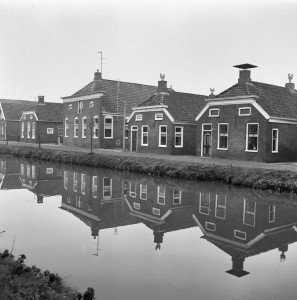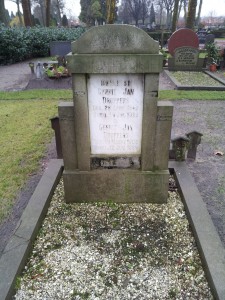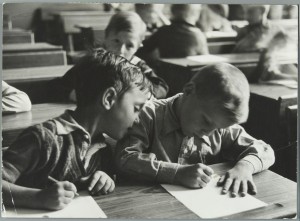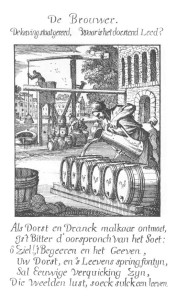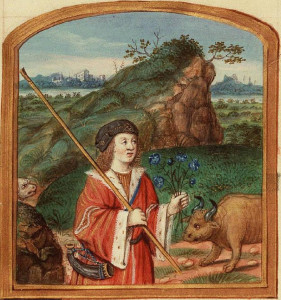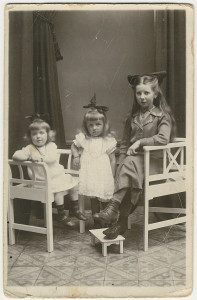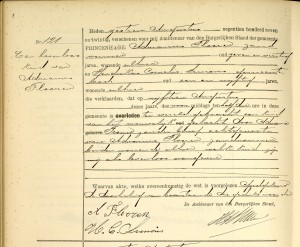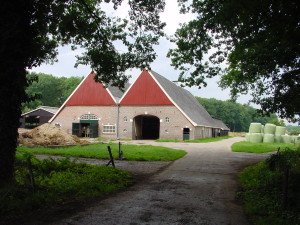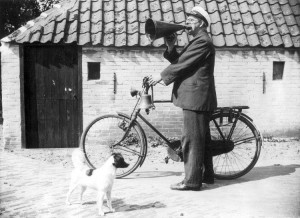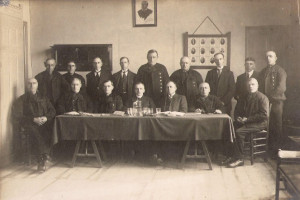Since the introduction of the civil registration (in 1811 in most part of the Netherlands), everybody was supposed to have a fixed name. Everybody who did not have a surname, was required to take a name and have that recorded. The reality was not always so neat. Especially in regions where many people did not have surnames before 1811, like Friesland, Groningen, Overijssel and Gelderland, the same person may appear in civil registration records under different names. Willem Lucas de Jonge and … [Read more...]
Ask Yvette: Resolving Conflicting Evidence in Early Civil Registration Records
Dutch term – wijlen
The term wijlen means 'the late,' or 'deceased.' You will often encounter the term in marriage records or death records, where one or both parents are deceased. The record might say "zoon van wijlen..." [son of the late...] or "dochter van wijlen..." [daughter of the late...]. Sometimes, the word is abbreviated to 'w' and you will see svw or zvw [soon/zoon van wijlen: son of the late] or dvw [dochter van wijlen: daughter of the late]. These abbreviations are most commonly found in church … [Read more...]
Sources for Dutch Genealogy – Pre 1811 Cheat Sheet
Looking for information about Dutch ancestors in the period from say 1650 until 1811 (before the introduction of the civil registration)? This cheat sheet will tell you which sources to consult. In some cases, not all types of records are available in each region. If a town did not have an orphan chamber, the administration of the estates of (half-)orphans was handled by the court. Not all regions had notaries, in which case voluntary legal actions were handled by the court as well. … [Read more...]
Dutch term – Brouwer
A brouwer is a brewer. Since most of the water was not safe to drink, most people drank beer. 'Small beer' only had a low alcohol percentage so it was safe to drink for children. In larger towns, brewers were organized in guilds. In smaller towns, they operated independently. In most places, brewers had to pay tax on the beer they produced. Some of these tax records can be found in local archives or city ledgers. Also, their measures and pints were sometimes calibrated by town officials to … [Read more...]
Dutch term – Grasmaand
Grasmaand literally means "grass month" and is the old word for April. … [Read more...]
Case study – Using population registers to tell a story
When you find enough evidence to answer your initial research questions, it is tempting to move on to another family. But you can discover a whole lot more if you make the effort to find all available records. In this case study, I will show you how you can find out more about the lives of your ancestors using information from Population Registers. Example: Maria Gommeren When I first researched my great-great-grandmother Maria Gommeren (1864-1918), I stopped looking for records once I proved … [Read more...]
Dutch term – levenloos
Levenloos literally means "lifeless" and is used to refer to stillborn children. In death records, you will often read "levenloze dochter" [stillborn daughter], "levenloze zoon" [stillborn son] or "levenloos kind" [stillborn child]. Since 1811, death records were created for stillborn children (children born after a pregnancy of more than six months). They did not have birth records, as these were reserved for children that were born alive. If a child died before the birth record was created, … [Read more...]
Dutch term – Parenteel
Parenteel is the Dutch word for an overview of descendants in the male and female lines. A parenteel can be represented in a narrative form or in a chart. It can include people with many different last names, as the descendants of daughters and their spouses are traced too. Some Dutch genealogists publish parentelen online, so a search for the term parenteel combined with a surname or place name of interest may lead you to these publications. Example: Parenteel of Egbert Mierdinck The largest … [Read more...]
Dutch term – ambtenaar
An ambtenaar is a civil servant or government employee. In civil registration records, you will often see an ambtenaar van de burgerlijke stand (clerk of the civil registration) officiating the marriage or registering the birth or death. During your research you can encounter ambtenaren in two ways: your ancestors may have been ambtenaren themselves but they also would have dealt with ambtenaren like clerks, teachers, soldiers, police officers or town criers in their every-day lives. The … [Read more...]
Dutch term – kerkenraad
The word kerkenraad or kerkeraad means church council that was responsible for the administration of the church. The minutes of the church council can be a rich source of information about members of the church. Read more about using church council minutes for your research. … [Read more...]
